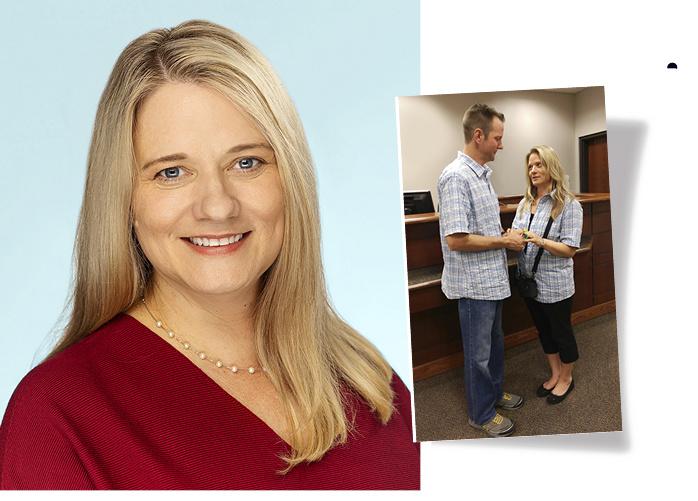
2 minute read
Checklist
“I was so tired, but couldn’t sleep”
Jackie Williams, 42,
Advertisement
P ORT ST. LUCIE, FL
Shopping with her mom one day in 2014, Jackie could barely make it around the store. Back home that afternoon, despite her exhaustion, she couldn’t sleep, and her heart was pounding “erratically.” “Get dressed,” said her mother, a nurse. “We’re going to the hospital.” In her early 30s at the time, Jackie was astounded to discover that her heart was galloping at 200 beats per minute—more than double the normal resting heart rate. She was diagnosed with atrial fibrillation, an irregular heartbeat that can cause blood clots and stroke. She was put on betablockers to stabilize her ticker.
C H A N G E O F H E A R T :
Jackie revamped her life: She now exercises, focuses on managing stress, and has made a point of slowing down. She eventually quit her high-pressure job, and she makes time for enjoyable activities on her bucket list, such as volunteering and travel.
Do one thing: Listen to
your body. If normal activity feels a lot harder all of a sudden, you’re short of breath, or you notice a fluttering or rapid heartbeat, get to a doctor ASAP. You can also do this quick heart check: Climb a flight of stairs, and if pain or tiredness intensifies, call a doctor.

LIVE LONGER & STRONGER
After eight years, Maggie and Jon got hitched.
“I couldn’t describe my symptoms”
Maggie Teliska-Parke, 48, TEWKS BURY, MA
Maggie was finishing a six-mile hike in the sand dunes near Lake Michigan when her chest started hurting and she was hit with a sense of impending doom. “Something felt really wrong,” she says. Yet when she went to urgent care, she still checked “no” next to the question “Are you experiencing chest pain?” She struggled to find the right words to explain what she was feeling, so she felt as if the doctors weren’t taking it seriously. It wasn’t until three pulse oximeters in a row failed to detect normal oxygen levels in her blood that doctors realized what was going on: Maggie was having a heart attack. Doctors put a stent in the blocked artery and a balloon in her heart’s left ventricle to open them up, but the permanent damage was significant. She was diagnosed with heart failure and now has a pacemaker-defibrillator in her chest.
C H A N G E O F H E A R T : Three weeks after her heart attack, Maggie married her longtime sweetheart and moved across the country to be closer to family. She now teaches other women in heart support groups how to get the medical attention they need.
Do this now: Learn how to explain your symptoms so doctors will take you seriously and get the information they need to help you. If you’re in pain, say that and rate your pain on a scale of 1 to 10. Avoid vague phrases like “I’m uncomfortable.” Say exactly where it hurts, with details about what it feels like.
HE ART AT TACK WARNING SIGNS
Call 911 if you experience any of these, says the American Heart Association.






